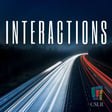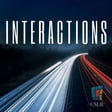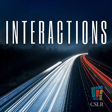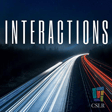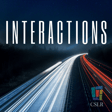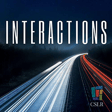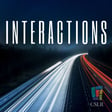Podcast Introduction
00:00:11
Speaker
Hello and welcome to the Interactions podcast. For our new listeners, Interactions is a podcast produced by the Center for the Study of Law and Religion at Emory University. Here we explore the intersections of law and religion and their impact on the world around us. My name is Sierra. And my name is Urvi, and we are students on the digital scholarship team here at the Center. This is the third episode of our latest interaction season, focusing on recent works in law and religion.
Meet Arielle Lieberman
00:00:38
Speaker
In this episode, we are excited to speak with Arielle Lieberman, a legal scholar whose work touches on education through an interdisciplinary perspective, as well as inter-religious engagement and legal theory. Dr. Lieberman has an SJD from Emory Law School and currently serves as the Paul and Marion Kuhn Scholar in Law and Religion, the Director of Undergraduate Outreach and Engagement, and the Managing Editor of Canopy Forum.
00:01:03
Speaker
In this episode, John Bernal and Whitney Barth join Dr. Lieberman to discuss his current book project on civic education, what we can learn from the Jewish tradition, affecting change in the political system, and his reflections on the effects of legal education for undergraduate students.
Episode Overview and Team Introductions
00:01:21
Speaker
Thank you for joining us on this episode of the Interactions podcast. Please take a look at our past episodes. We have a wealth of content that we'd love for you to explore. And don't miss our next episode where we talk with Mark Storsley about the Supreme Court and school prayer cases.
00:01:44
Speaker
I'm Whitney Barth, and I'm the executive director of the Center for the Study of Law and Religion at Emory and the Charlotte McDaniel Scholar within the Center. Our Center explores the intersections of law and religion through research and scholarship, teaching and training, and public programs. And I'm joined this morning by my colleague, John Bernal.
00:01:59
Speaker
Hello. My name is John Bernah. I'm a sociologist working at the Center for the Study of Law and Religion at Emory University and the director of digital scholarship. Today we're speaking with Dr. Arielle Lieberman. Ari wears many hats at the center, including the Paul and Marion Kuntz Scholar in Law and Religion, the director of undergraduate outreach and engagement, and Ari is the managing editor of our digital publication, Canopy Forum.
Lieberman's Career and Education Journey
00:02:25
Speaker
Ari, welcome to the podcast. Thank you. Thank you so much for having me.
00:02:29
Speaker
We will have a full introduction at the top of the episode, but to start, can you tell us about your professional life and how you think about your work? Sure. So professionally, I'm a researcher. And, you know, I have kind of a winding road on how I got here, which I think is kind of important, you know, given that the scope of the conversation we're going to have today about my newest project, I was a practicing lawyer for a very brief period of time. And then I was a judicial law clerk for a very brief period of time. And then I found my way out of it and into Jewish nonprofit work through some circuitous roundabout ways.
00:02:59
Speaker
And as I sort of worked in Jewish non-profit work, I sort of ascended to become a senior Jewish educator with a few Hillels, and then I became a director of a few of the on-campus engagement efforts dealing in the Jewish community. I came to sort of realize and a a budding interest in a variety of different fields, inter-religious dialogue, Jewish education, undergraduate outreach and engagement, those types of things, through the lens of my law training. So that very sort of unique mix of things ended up sort of inspiring me to pursue some further education. I came across the Center for the Study of Law and Religion while I was working in Atlanta at a neighboring institution and kind of ah got myself really excited to get a degree in education law and religion.
00:03:42
Speaker
um It makes a lot of sense given, you know, sort of the background of ah of my work experience. And, you know, after a few years researching, i I fell in love, stayed at the center after I finished my SJD working with many great colleagues. um And now I'm looking forward to sort of moving on come this January to be the new assistant professor of law and legal studies at Auburn University.
00:04:01
Speaker
which I'm quite excited about because it continues sort of building on my interest in teaching law to the non-law students and sort of working especially with different groups um on the study of law and religion topics.
Exploring Civic Education
00:04:13
Speaker
Great. Are you currently working on a book project titled Law as Civic Education?
00:04:18
Speaker
What was the inspiration for this book and what problem does this book address? So I will start by answering kind of the question of what this book broadly addresses, which is a gap as I see it in the current way in which civics civic education in the school setting is being facilitated.
00:04:38
Speaker
Can you say a little bit more first about what you mean by civic education? Sure, sure. So civic education in in the broadest sense is really the study of any and all processes that affect the people's beliefs, capabilities, activities, or um wherewithal or understanding of how to operate within communities.
00:04:55
Speaker
civic education in America, particularly with the American political and and social communities. It's not necessarily an intentional education or a formal education like you could see in a school. system For instance, it doesn't even really have to be in a school. it can Civic education can take place passively through your family or your social or even your religious sort of affiliations and communities because they can they too can sort of transmit norms and values through the various activities that they engage with. But broadly speaking, civic education helps us participate in a greater way with our democracy. In the formal setting, I actually perceive quite a few problems in the way in which civic education is offered. And this is the issue the book endeavors to address.
00:05:37
Speaker
Civic education promotes in a lot of ways what I perceive to be sort of an apathetic citizenry. It sort of disengages, I find, students with democratic citizenship and it sort of removes the immediateness or the interest of young people to get involved with civic matters. And this is done because I think civic education emphasizes or offers too great of an emphasis, places too great of an emphasis on rote memorization of descriptive facts,
00:06:05
Speaker
of emphasizing particular historical or contemporary political points rather than talking about big ideas, um mean really doesn't spend a lot of time on the character or moral aspect of civic education and citizenic citizenship education.
00:06:20
Speaker
and instead favors too much of an emphasis on facts based on processes or ideas, right? And so my thinking is how do we create a better civic education? um And how do we create an education that emphasizes just as much the moral and character development of young citizens as well as their investment and interest and wherewithal and knowledge about the processes and institutions or ideas? So that's kind of like what civic education is and and what the book seeks to engaged with now the question is you know well what inspired me and kind of what are we what are we what do we do what do we do right
00:06:56
Speaker
So as I mentioned to you all before, I have a background in sort of Jewish nonprofit work and working with undergraduate students and also students of a variety of ages, teaching and learning with them and also working to sort of help them develop as professionally um and personally invested in a variety of, including civics, but also their religious and their social and their personal communities. And so I wanted to approach civic education reform from the perspective of somebody who has worked with folks in the Jewish space and so actually was inspired a lot by the way in which Judaism actually emphasizes certain aspects of the duty and right to educate and Judaism's own form of civic education which is actually robustly dealt with in a variety of our big our big big texts and ah very sort of very clearly set down for us and so using the rules um and the ideas of Jewish education is really inspired and informed ah sort of ah theoretically the law of civic education project.
Legal Education vs. Professional Training
00:07:51
Speaker
um And then I think personally also I was inspired as well by some earlier work I did when I first started teaching. I was a lecturer at Oglethorpe University, which is up in Brookhaven, Georgia. um and i was in charge And I was kind of in charge of teaching some courses on politics, philosophy, and law for their core program. um Now, Oglethorpe is a pretty typical liberal arts college in that they emphasize the use of the liberal arts as a means of developing the democratic citizen as much as the aspiring professional or whatever.
00:08:21
Speaker
But what I found to be particularly interesting, at least from my perspective, was that the students came into my classes um really disinterested in a lot of ways. Disinterested and certainly ignorant of a variety of the processes and systems that took but sort of move American law and American policy forward. This doesn't necessarily mean that they ah they didn't care. It just means that if it wasn't something they particularly felt was their fight to fight, they were disinterested in sort of thinking about broader pictures. They they didn't really ah engage very deeply with politics or with social or political issues that they felt were kind of separate from their world. And so after we started teaching and working with law and working with a variety of
00:09:05
Speaker
great sort of great thinkers and great works through these core classes, I saw just how much of an impression their education made on them. And then I saw shifts within a semester, I saw shifts in their sort of perspectives. And so this is something that really pushed these students to sort of go out of their comfort zone, think more critically about their role in their sort of civic community and their role in the wider national political landscape and really push them to ask important questions in ways that I thought were profoundly important and profoundly interesting. And so first-hand experience also of the way in which a strong education that, you know, was civic in a variety of, at least in spirits, ah really sort of helped push me to develop this sort of theoretical monograph and these larger book projects on law of civics.
00:09:56
Speaker
Well, I first want to say congratulations. That sounds like the the the goal of all teaching, right, is to get your students to actually shift perspective and start asking some of these questions. It sounds, Ari, like your background, you know you've you've done a lot of work thinking about the law with non-law students. And I'm curious how the type of legal education you propose or talk about in the book is different from professional legal training at a law school.
00:10:25
Speaker
Sure, um there are a variety of ways that this is different. um I think the biggest way is that unlike professional legal training, the law education that I'm talking about is not client-centered. It's not really focused on building better lawyers who will advocate within the system for their client's ends um or operate within the system in defense of their clients robustly and zealously as they're bound to do. I'm not interested in a civic education that makes for better professionals in that sense.
00:10:54
Speaker
Rather, I'm looking at law in the most robust way possible and thinking about law as a sort of fulcrum of values and ideas um and a source text for us to think about what America prioritizes systemically and values. um Tapping into that through the conversations that law gives us, right? So viewing law as almost this ongoing textbook of America, right? This involves, I think, kind of creative lesson planning about the types of cases and curating, of course, of the types of cases that you would expose the non-law student to, especially in the book as I so begin to advocate for law learning, not just at the undergraduate level, but also at the K through 12 level, particularly thoughtful use of law as a sort of expository tool.
00:11:43
Speaker
um for students to to to work with big ideas that law contemplates, but completely removed from the adversarial system or the idea of supportive legal education for law, for lawyerly training, right, and lawyering skills now. There is an emphasis, of course, on cultivating critical thinking abilities and a lot of the sort of um skills that come with a legal education.
00:12:04
Speaker
But I wouldn't go so far as to say we're prioritizing creating a nation of lawyers, so because God forbid.
Empowerment through Understanding Law
00:12:10
Speaker
um you know but ah but and But nevertheless, I think that there's a lot that we can draw on that is outside of the typical this sort of typical law training schema. right And in fact, if you look back at our history of legal education in the United States, from the colonial era until about the 1800s,
00:12:27
Speaker
Law was provided as a part of a liberal arts education for the development of broader social leaders. right For the cultivation of broader social leaders, they were there were lectures given with frequency at various colleges, and it wasn't until the ah standalone school, I think it was called the Litchfield School in Connecticut, that was sort of a... proto law school And then from there we started having law schools and the the formal training, but the creation of lawyers was secondary. Legal education for the creation of lawyers was secondary to the idea that that it is important for social leaders, societal leaders, to know law.
00:13:00
Speaker
That's an interesting history. so So the education of law actually preceded law schools in a professional sense. So what you're proposing is almost going back to you. In America. In America, yeah. Interesting. Yeah, interesting.
00:13:17
Speaker
Your book proposal, um though not outcome-oriented, in the traditional sense, hopes to encourage students or citizens to, quote, work within the system to affect change, end quote. How do you think about the difference between working within the system and outside the system to affect social change? So if I may, I want to start with this idea of not being outcome-oriented. Sure. Because interestingly enough, this particular question garnered quite a lot of attention from the editors of ah of a recently published piece on this subject.
00:13:47
Speaker
When I say not outcome-oriented in the traditional sense, I mean that I'm not trying to use law to create a better social advocate or to create a more participatory citizen in the strictest sense, right? I actually think there's a world where someone knows law, appreciates their place within the broader system, and then chooses to do nothing with it. um And then I personally don't cast you know, sort of judgment on that. I would not say that this is going to build a better protestor or that law learning is supposed to build the better policymaker down the line or someone who, you know, I definitely don't want to encourage people to go into politics necessarily. With that said, this education I think is foundational for every citizen to be able to best participate in the sort of
00:14:33
Speaker
reflective aspects of democracy, this idea that our laws and our policies and our ideas are direct representations of kind of what the will of the people are sort of collectively trying to accomplish together, you know, and as a part of this national project. To work within the system, therefore, I see as a sort of broader interest in having all citizens sort of have the rhetoric, have the understanding, um and have the capabilities, should they choose to avail themselves of that capabilities, of effecting change without tearing the whole thing to the ground, or without having the perception that it needs to be torn all the way to the ground. To hold in their hearts, both at once, this idea that maybe the system is slightly broken and we have huge problems, which I don't want to say we don't.
00:15:16
Speaker
But to say that it is possible within our existing structures to build something and new and to work together collectively to strengthen existing infrastructures to better facilitate the project of justice, you know, etc. This is something different than working without the system, which I believe that in ignorance of the law and in ignorance about how our system works, sort of predisposes one to do. This is something like rioting.
00:15:42
Speaker
Right? This is something like saying, voting is useless because we're really, we don't count and we're just, you know, we just, some full scale change, some revolution needs to take place. This is also a largely Jewish idea because for the longest part of our history, Jews have been selected against when riots and big revolutions sort of take place. And so.
00:16:02
Speaker
an interest, a vested interest in maintaining the system and working within the system, both internally as well as externally in terms of Jews' relationship with their broader communities, or the broader non-religious communities, that there is an interest in sort of making sure that slow change um that is legitimate and that is thoughtful and intentional far exceeds, ah in terms of benefits, far exceeds the the the interest in seeing quick change but very, very quickly, for instance, tearing down certain ideas or tenets or institutions. One thing that we see in the in current events is a call, for instance, of removing justices from the Supreme Court, abolishing the Supreme Court.
00:16:40
Speaker
cutting down the size of Congress, those types of things, right? As opposed to saying, well, actually, like how do we think about what what are the real problems of incumbency and what are ways that within the law that we can help effect change in that regard, dive a lot of corruption or other issues that we have with our um with our systems and our institutions and the people who are running them.
00:16:57
Speaker
When we're protesting the Supreme Court, for instance, um as has been the case in the abortion conversation, the abortion debates and challenges across the country, when we're when we're protest protesting the Supreme Court, do we really know as a collective kind of what are all the different aspects of the legal issues that are associated with the most recent Supreme Court case, right? When we protest the Supreme Court saying that, you know, the Supreme Court needs to address dobs and change things, well, actually there's a lot of administration and legislation that can go through that can actually help remedy and accomplish the end goals that protesters are calling for, but they don't have the legal knowledge to know kind of, this is these are the the varied ways in which we can creatively find collective solutions, right? This in this way could make a better protester, right? Because they'll know what they're protesting for and they're what they're trying to advocate for in terms of change. But it also helps sort of redirect some of the frustrations that we have with the system and help make the system look a little bit more accessible.
00:17:52
Speaker
as opposed to it being way too big for us to sort of deal with. And this leads to frustration and it could ultimately lead to apathy or worse, riot or full scale calls for its dissolution, right? So this is kind of what I'm trying to advocate for and I think law um and the training of lawyers specifically, but more broadly, the legal education strongly emphasizes how change is made slowly, over time, and through the use of creative lawyering, as well as through the use of sort of like precedent and values and good argument.
Influence of Legal Education on Society
00:18:25
Speaker
And education in this might be, I think, very helpful for the citizens.
00:18:29
Speaker
Just to follow up with something you said towards the beginning of that answer, you said that even with this kind of education, there might be people who who don't have any kind of outward response. So what is the benefit of this kind of education for someone who doesn't foresee themselves taking any kind of outward action in response?
00:18:46
Speaker
So aside from this piece of work, I do a lot of work on sort of the and sort of the family and think a lot about the family in the context of legal reform, law and religion, you know, and all that and sort of all that world of of scholarship. To my mind, someone who's educated in law, even if they're not overtly acting in the civic space or in the collective sort of community space that is the political and social sphere still interacts with people on a daily basis. Being empowered with the rhetoric of law learning will make those conversations that they're having one-on-one with individuals so much more informed and thoughtful and intentional. And so, yes, they might not become active.
00:19:23
Speaker
participants in the civic system, but they're having different types of conversations with their family, right? They're having, you know, perhaps they're pausing for a second before they cultivate a judgment, right? When they're reading something from the New York Times or they're thinking about the news, right? Gives them pause enough that they're not acting rashly as ah as a result of what someone else says.
00:19:45
Speaker
In that sense, I think we combat groupthink. I think we combat the pressure that that is often sort of propounded by the media for us to take sides and galvanize one another one another against each other, right? And so I think that there's a soft activity that's going on there that is important. And I think civic education is supposed to help us with. I think that one of the big principles of civic education is to sort of get us to, quote unquote, think for ourselves. And this is law education being profoundly well known for its critical thinking.
00:20:12
Speaker
ah sort of the critical thinking skills one gains from it gives you the capability of discerning what is going to pressure you to act a certain way and what what do you believe, right? So I view the prospect of empowering one to develop one's own opinion just as important as the ability for one to participate intentionally in our civic and governing matters.
00:20:32
Speaker
Yeah. And I have another follow-up question. You've given us so much here in this rich response. You used the example of those who are critical of the Supreme Court's Dobbs decision, for instance, or abortion generally in the current state. I'm wondering, would you say that the current efforts at a different state levels to revert back to or to provide more protection for the use of legislative systems, it sounds like is one thing that you're advocating for, is a way to work within this Is that, to my am I understanding that correctly? Yeah, just as an example. Exactly. but And I guess the other question related to that is, when you say work within the system and use the Supreme Court as an example, yeah I imagine that someone might say, what if or the way in which the Supreme Court operates in the world is itself not operating within the system. And so how would you respond to the kind of potential criticism that the kind of working within the system, the way that you're presenting it, might present a kind of idealized view of the system? Yeah. yeah
00:21:29
Speaker
And I think there's a lot there. i would I will say that the system is definitely itself not a fixed and perfect thing. And I certainly agree with you. I think that there is a lot that can be said for those individuals that now know where to redirect their energies and efforts in time. um So if the Supreme Court's not acting within the system, for instance, the emphasis on sort of advocating to our legislators and to folks who are operating in different domains of the system or holding them accountable to make change,
00:21:57
Speaker
Might be better for in terms of inexpensive energy. So yes, the Supreme Court You know how the Supreme Court is going to rule on something because you know The Supreme Court is clearly not playing by the rules of what of what it's supposed to be doing So let's place our time and energy in terms of advocacy elsewhere law education will empower you to do that because you'll know where to look and the agencies and administration, the sort of administrative state and the way in which a lot of our sort of regulations in our day-to-day is sort of governed, knowing where and how that, what that looks like is, I think, particularly important. I think that the Supreme Court is a very, very public-facing institution, but at its core all it's supposed to be doing is holding accountable to the Constitution what laws pass muster, right, and and are consistent with ah with the laws of the of the state. But a lot of the action is going on elsewhere.
00:22:43
Speaker
So there's a lot of focus on the Supreme Court, emphasis on the Supreme Court, where I don't necessarily think that it needs to be. I have no real answer for the idea of, you know, well, the Supreme Court's not playing by the rules, so. But maybe there is a solution in sort of thinking about how the Supreme Court needs to kind of be.
Law, Morality, and Jewish Educational Values
00:22:59
Speaker
less of the focus, right, even though it's so public facing. And I think that we need that temperance that law teaches for us to sort of see that clearly. And if you go to a high schooler, they're more likely to give you information about the Supreme Court than about administrative agencies, right? And a legal education is gonna be just, it should emphasize the other aspects of our state um and our state structures and the ways in which we work within those structures as much as sort of the big take it items. But unfortunately, I would even hazard to say that they wouldn't even give you much on the Supreme Court.
00:23:29
Speaker
That's a hard thing to reform, though, and I don't have an answer. Yeah. Ray, I like the distinction you're making between these two different aspects of law. On the one hand, the people who are not legal experts when they're confronted with this big, imposing, opaque system, it can be a disheartening. But ah the program that you're describing, you know instructing how the machine works empowers people to kind of redirect and channel that frustration in more effective ways.
00:23:57
Speaker
On the other hand, you also talk about kind of the non-political aspects of law, you know, law not just as a tool, but almost as a way of being, as a character-forming body of knowledge that informs your your family and your relationships and your community. Is that distinction, am I kind of understanding those two pillars? Absolutely, absolutely. A moral and character aspect of it as well as a way in which we relate to society. I mean, the way in which we relate to one another in America specifically is through the law.
00:24:26
Speaker
almost always, um whether we think about it or not. And it's because we're such a legal culture. And so I think that, you know, and this is also heavily inspired by Jewish law and Jewish thought as well, I think that you're exactly right. There's so much to the idea of law and the use of law as an education for rearing and developing Americans who are capable of working within that sort of robust legal atmosphere.
00:24:51
Speaker
Well, you evoke the Jewish tradition both as a case study in the book and as an inspiration for the type of programming you describe. What aspect of this tradition should should our listeners know about and why do you see this as instructive for for civic education? Yeah, so there are kind of two things I would emphasize. the Jewish law on education is very well developed. And so the reader can definitely consult a variety of places to sort of explore it in its most robust form. Two things I'd kind of emphasize is that not only do we have a right to education in in the Jewish tradition, we certainly don't in the United States, but in the Jewish tradition, there's an affirmative duty to educate. And that's the first thing I think I would emphasize. The duty to educate looks like making sure that your children and also adults are educated religiously.
00:25:41
Speaker
morally, philosophically, theologically, as well as professionally, right, that they can go and earn a living. ah The Jewish tradition prescribes, you know, prescribes rules as to the administration of schools, for instance, prescribes rules on sort of the bounds of how this educate, what this education looks like, the content and substance of this education.
00:25:59
Speaker
and said in places on parents and if not parents, the community collectively, the duty to educate as a part of the duty of custody is just as important as the duty to clothe or the duty to raise children safely, things like that. So the emphasis on affirmative duty, I think is the first thing. It's very, very unique, very, very unique. It does not exist in the sort of, certainly in the American context, but also but more broadly in the international context and then other states and things like that. The second thing is I think this emphasis on education for life.
00:26:29
Speaker
Like I sort of stated, but in its broadest form, civic education is not necessarily formal, right? Civic education is about learning and capabilities through a variety of different contexts and spaces and over long times, right? And it can be done not just for young children, but also for adults. The Jewish education, you know, tackles that straight on and says, no, there's an obligation to continue learning into adulthood, right? And that adults are not exempt from belonging through learning to in the Jewish tradition. This is, I think, very, very interesting.
00:26:59
Speaker
Because it means that Judaism emphasizes belonging and connection to the lived tradition through learning. Law is constantly changing. And though I have not really developed a a concept of an adult learning education for for law just yet, I can say that it emphasizes that that law is the type of education that it should be accessible at a variety of different ages and can follow one through.
00:27:25
Speaker
one's education because it is just that important. It doesn't become less important when you're an adult operating in society than you're a child trying to learn about your civic institutions, right? And I think this is important because education, at least in America, is perceived to be, well, you're educated until you're done with college, right? Or until you're done with high school. And then education happens in different ways and it's up to you, right? But no, it it emphasizes continued discipline and diligence as to sort of belonging in the community through your learning. I think that's a really, really important sort of takeaway and an inspiration for how we should be re-conceptualizing education today.
00:28:03
Speaker
You know, I teach in research. It's what I do. So I have the good privilege of you know living that. But that takes some selling to a variety of people who aren't particularly predisposed to this. But I think that our founders, if you go and look at the papers of our founders, would support the idea that you can't be an ah an uneducated citizen, ah a so a good citizen, if you're not educated, right? Or you're not at least educating yourself constantly in the ideas and processes. And unfortunately, even when it comes to elections or it comes to ah you know, civic participation in its strictest and most sort of transparent forms, um we don't emphasize the learning part of it um that goes into your vote, right? Or that goes into how you think about a particular issue or a challenge, right? This, again, opens us up to pressure. It opens us up to suggestion. It opens us up to folks who would mobilize our our our polarization, our sort of interest in sort of picking sides, things
Lieberman's Book and Personal Motivation
00:28:59
Speaker
For the worse, right? It subjects us to too much, I think, sway. So education as a bulwark against that is a particularly important aspect of the Jewish tradition. There's a ton of others, but I think those are the two that I would emphasize.
00:29:15
Speaker
Really interesting. All right, who is this book for? So theoretically, this this book this book is is largely theoretical. um it It takes ah sort of it takes ah cues from educational philosophy and child and developmental psychology and things like that to be able to advocate for law civics, as well as, of course,
00:29:33
Speaker
a pretty broad jurisprudential discussion. um So I would largely say it's for scholars interested in um civics from theoretical perspectives, interested in education, or or at least multidisciplinary approaches to the study of law. um It's definitely for legal education interested folks. um There is another book that will be forthcoming that actually sort of takes law as education.
00:29:56
Speaker
ah Sorry law is civics and ah turns it into a practical sort of a practical Assessment of what law looks like um at the K through 12 level um and this will be measured against existing states civic standards and so will be opened up more to teachers and folks who are interested in sort of augmenting their legal, e their their civic education courses or their social studies courses to teach law. um And I'm in conversations with folks at a variety of different public schools and private schools across the Atlanta area.
00:30:27
Speaker
um to to to see whether or not this is something that's salient for them. So, um you know, as somebody who doesn't really work in that space, um you know, it's particularly important for me to get their input on that. But this book I think is supposed to start the conversation. It's also I think for me, um because as somebody who spent a lot of all of their time, actually, as an academic, thinking about teaching law to the non-law students. um It is important, I think, for me to have a strong foundational theory as to why I'm doing what I'm doing um that's justified not just because I'm more interested in working with non-law students, um but is actually has, I think, a theoretical component. um I do see
00:31:06
Speaker
changes made um and the benefits of legal education really sort of settle it set in with folks who are not lawyers or not interested in being lawyers. um I like seeing folks who aren't have no interest in going to law school or working in the legal world at all.
00:31:21
Speaker
a benefit from law education. And I like hearing the stories about how folks see this education as a stepping stone for them to be more involved citizens. um I think that that's important. um And I think that you know this this book I think is for as much for me to be able to sort of show why I think it's important. So I look forward to both books. Thanks. Or is there anything else you'd like to share with our listeners?
00:31:48
Speaker
No, I mean I think I guess I'll leave off with a sort of anecdote about when I sort of joined a book club on John Dewey's democracy and education. And i John Dewey is a man favorite of a variety of liberal arts college instructors. you You hear John Dewey and his pragmatist philosophy and his very great educational work.
00:32:08
Speaker
you know in ah in in all types of courses and in conversations. But you know I sat with Democracy in Education for like the 45th time for this little book club. And you know you never see sort of um you know folks involved in the book club obviously had but had a predispose already a predisposition and an interest in in civics and you know things like that, and and and education work. So this was kind of a self-selecting bunch of people. And they were so intense and passionate and interested, and they weaved in and important current events conversations, and they were really thoughtful about you know offering critical angles on so many of our important challenges and things. And it was like a perfect microcosm of a wonderful little democratic discussion. And it's exactly what I hoped
00:32:51
Speaker
would be our collective discussions more broadly outside of the book club. And then I left the book club and I realized that we're so far away from that. And we might be too big for us to have a perfect little robust, john ah you know, a Dewey based book club, right? Study group. but and And I definitely don't have any illusions that this is what we're gonna have. But we gotta work a little bit towards that, or towards getting to a space where people can engage in those conversations comfortably. And we're getting further and further away. It's not just sort of that we're we're at ah we're at a still space with that, it's that we're sort of becoming more and more avoidant. So that's alarming.
00:33:34
Speaker
And that's alarming for somebody who works, you know, with frequency in the Jewish community. It's alarming for me as an academic. I mean, I truly view education as a way in which we can bridge pluralities and connect the sort of connect gaps. And I view law education specifically as a way in which we can connect that to government and to democracy.
Episode Conclusion
00:33:53
Speaker
Arielle Lieberman, congrats on your upcoming book and thank you for joining us. Yeah. Thank you, Ari. Thanks. Thanks for having me.

